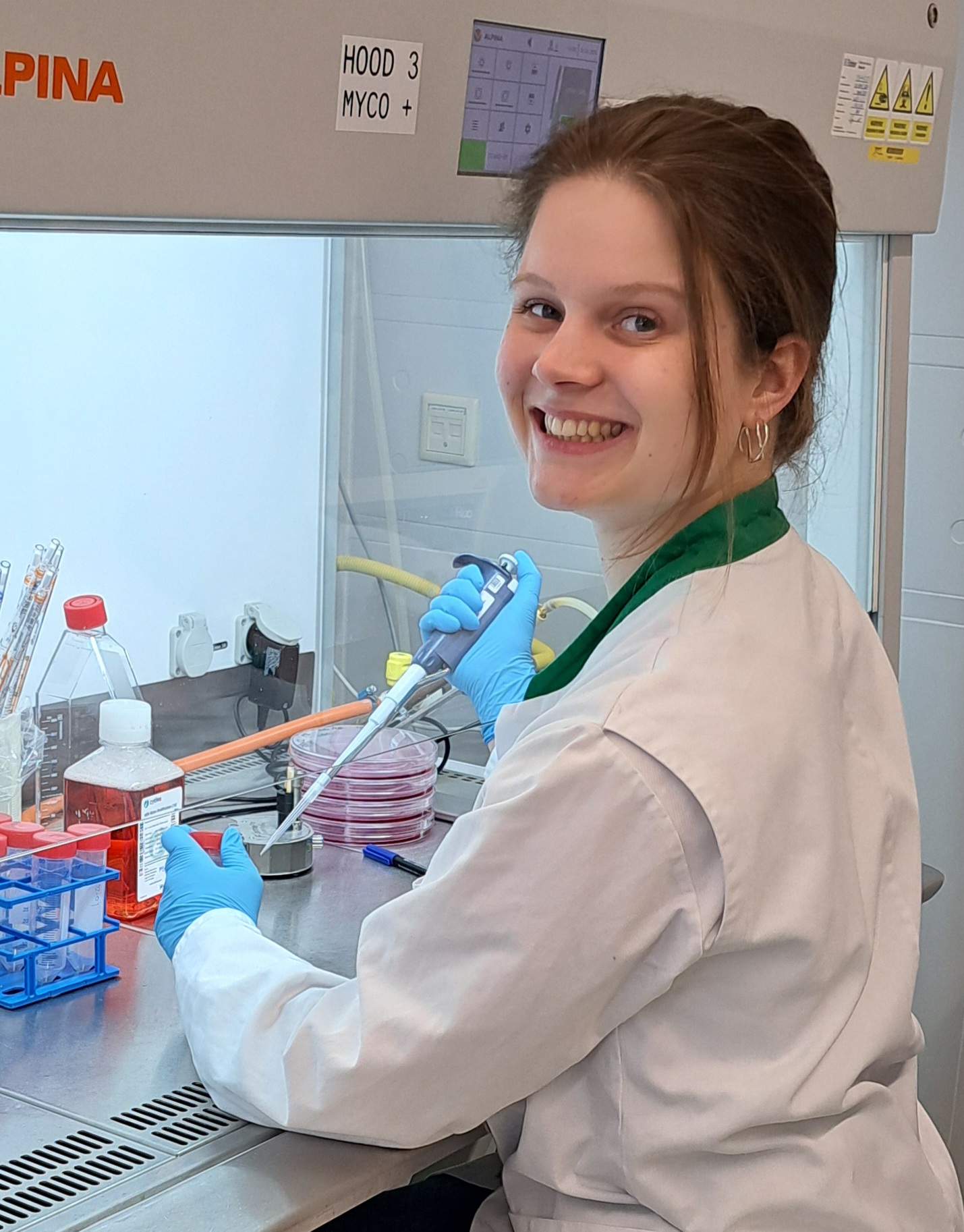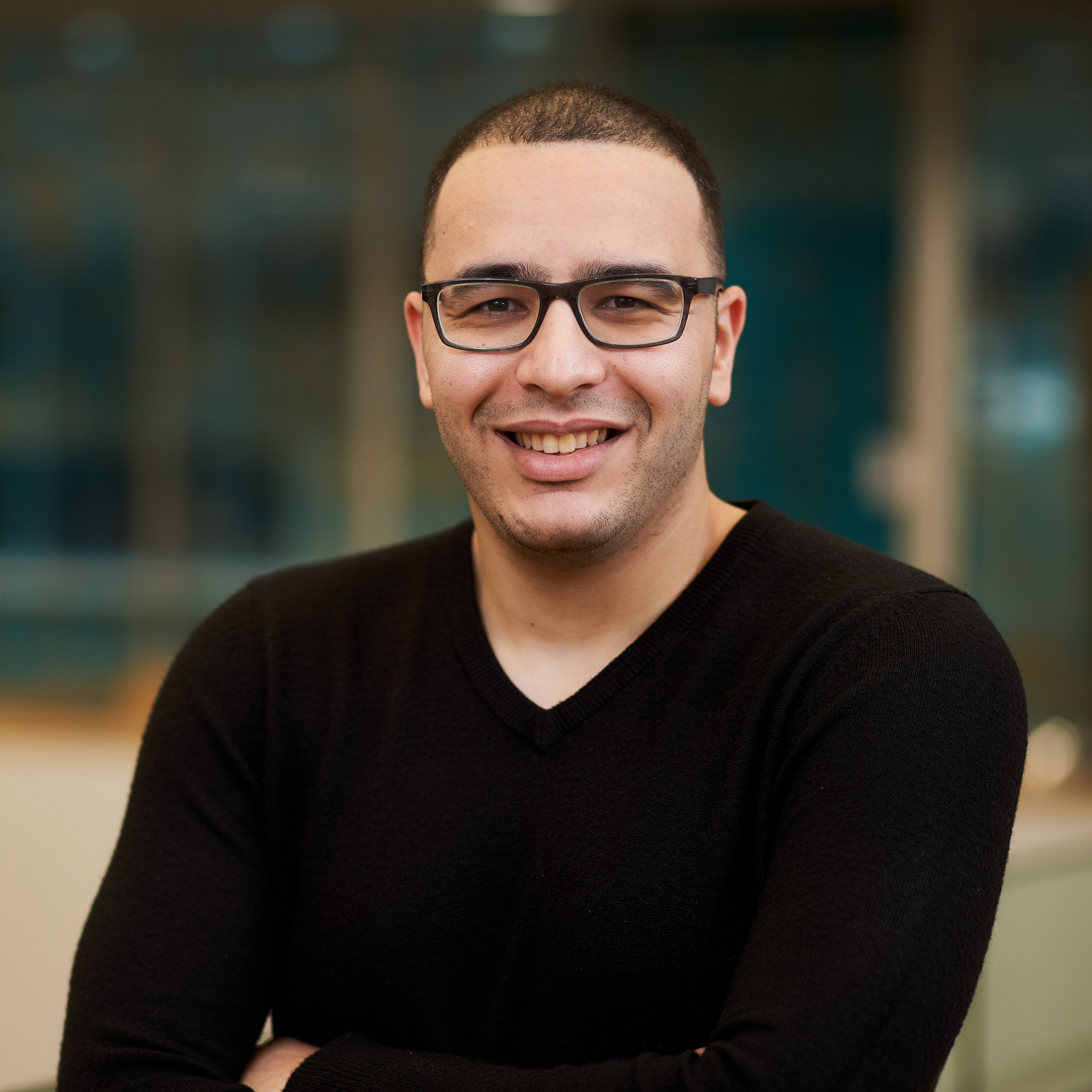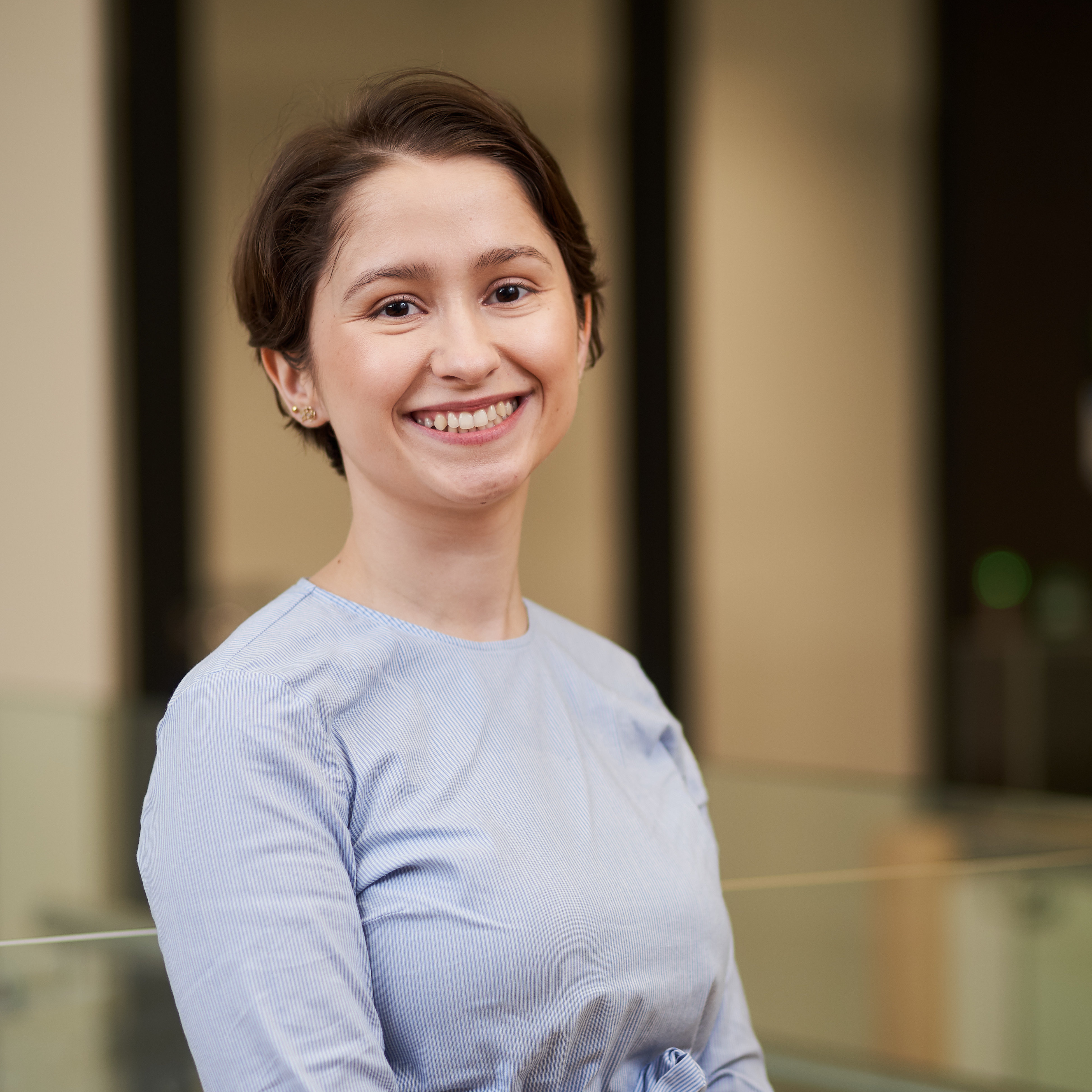Alumni stories
Why did you choose to study Nanobiology?
When I was in high school, my favourite subject was biology, closely followed by physics and maths. At one point, I thought I’d go into medicine. But I realised I would rather be involved in developing new methods and techniques than just applying existing ones. Then I found out about Nanobiology, which was perfect for me. I get to study biology, physics and maths, and I can also go into the lab to do healthcare-related research.
What did you learn during the bachelor Nanobiology?
I started the bachelor of Nanobiology in 2016 and was immediately drawn to the variety of topics on offer, including biology, chemistry, maths, physics, programming and more. As you move through the courses, you not only learn more about the individual topics, but you also learn to combine information and skills from different fields to solve complex, interdisciplinary questions.
One of the best things about the Nanobiology programme was getting better at analytical thinking. You will get lots of exercises where you are given limited tools and information and have to use them to figure out the answer. This will teach you to think critically and come up with creative solutions. You will learn that through reasoning, you can get pretty close to the right answer by making the right assumptions and approximations – even if you don’t have all the information. Developing your reasoning and analytical thinking skills is not just useful for nanobiology, they are skills that come in handy in pretty much any job.
Tell us about your current job
After completing my Nanobiology master's degree, I realised that the laboratory environment wasn't for me. I wanted to use my technical skills and analytical thinking in my job. So, after graduating, I moved to a consultancy firm where I became a Data & Strategy Consultant. Many of our clients are in the healthcare insurance sector. Even though I have moved away from biology, I have found that my work is still in healthcare. This allows me to use the data skills I gained during my Nanobiology studies, such as maths and programming, every day.
What did you learn during the bachelor Nanobiology?
When I started Nanobiology, it was a relatively new study. We are at the forefront of research into the links between biology, mathematics, physics and bioinformatics. I was really drawn to the idea of combining my two favourite subjects from high school – (fundamental) biology and mathematics. I really enjoyed the fact that we always had a combination of these courses during my bachelor’s. That meant there were always some courses that were a perfect fit for me and really sparked my interest, while others were a bit harder and more out of my comfort zone, where I could learn a great deal.
Which master's study did you choose after finishing the bachelor Nanobiology?
After finishing the Nanobiology bachelor, I still had an interest in both mathematics and biology. I went on to do the ‘Lerarenopleiding’, master Science Education and Communication at the TU Delft, which qualified me to teach Mathematics to high school students. I also did a master in Nanobiology, which gave me the chance to study more fundamental biology. There was a lot of freedom in this master to choose your own combination of courses, which enables me to specialise in a subject of my own choosing.
Tell us about your current job
I'm currently doing my PhD in the Department of Developmental Biology at the Erasmus MC. We are studying how human egg cells develop and we are trying to recapitulate this process in vitro, thus in a lab. I'm putting a lot of the knowledge I gained during my bachelor's and master's programmes to good use, particularly the academic level of thinking. Because we got such a broad training, I can link the different fields of study at this ‘intersection’ between biology, mathematics, physics and bioinformatics!
What did you learn during the bachelor Nanobiology?
After getting my bachelor's in Nanobiology and then doing a joint master's in Nanobiology and Biomedical Engineering, I knew I wanted to keep working in scientific research, which led me to pursue a PhD. Nanobiology was the perfect choice of study for me. It gave me a strong set of scientific skills and introduced me to lots of different areas of biophysical research. The programme offers a diverse curriculum and the flexibility to choose electives from various faculties, allowing you to quickly identify your preferred areas of focus.
As I was studying, I developed an interest in microscopy and programming. This led me to do my master's thesis on image analysis for super-resolution microscopy, which was a great fit for my interests. After that, I moved to Copenhagen to do my PhD at the Technical University of Denmark. I was focusing on developing image analysis techniques and theoretical models for super-resolution microscopy. Moving to a new country has been a great academic and personal experience. I would highly recommend it to everyone.
Tell us about your current job
After three wonderful years in Copenhagen and successfully concluding my PhD, I moved on to the next chapter. The combination of fascinating questions, scientific freedom and an international working environment made me want to pursue a postdoctoral position. So, I moved to California to start as a scientist/postdoc at the CZ Biohub in San Francisco. Here, as an Image Analysis & Machine Learning scientist, I am developing and implementing AI-driven models and pipelines for analysing biomedical microscopy data. This role lets me keep working on image analysis while simultaneously exploring machine learning in a vibrant institute at the scientific crossroads of Berkeley, Stanford and UCSF.
Advice for Nanobiology students
My advice to fellow Nanobiology students is to follow the path that interests you the most. Don't be afraid to take the plunge and move away from what you know. What's more, you should know that the research done at the Bionanoscience department (and TUD/EMC in general) is of a world-class level. Make the most of the research groups around you and use your professors as a great way to get connected. They're always happy to help and give advice on your next steps!
MSc Nanobiology exposed me to even more in-depth knowledge than the BSc. Alongside the core set of mandatory in-depth courses, with the free choice of electives there is quite some scope to specialise as the nanobiologist you want to become. And as well as the science, there’s also an emphasis upon developing soft skills such as scientific writing and presenting. All the knowledge and skills I acquired have been very useful for me in my career.
After graduating, I worked as a Technical Service Engineer at LUMICKS, a scale-up that develops novel, cutting-edge high-tech equipment with the dream of unlocking single-molecule and single-cell experiments for the world. This role required a deep, thorough understanding of the optics and electronics of complex machines as well as a fundamental grasp of the biological questions and assays customers were working on. My Nanobiology degree gave me the educational background needed not only to feel comfortable in both fields, but also be able to quickly understand, learn and utilise any new information and developments from the most fundamental basis. Moreover, since there was quite a lot of communication with customers, the soft skills acquired during this intense programme were directly transferable to the job. They made it easy for me to adapt to the customer, who might be either a biologist or a physicist, and to speak their language.
I have recently returned to academia as a PhD student at Leiden University. The research-heavy nature of the programme, in the form of the Master’s end project and work placement, has given me a nice starting boost in both the wet lab and the dry lab aspects of this work.
My story with Nanobiology began by chance, when I stumbled upon the Bionanoscience laboratories whilst visiting Delft University of Technology as a tourist from Romania. After intensive Dutch language courses (no longer required for new international students), I joined the interdisciplinary BSc programme in Nanobiology. This combined my favourite subjects – mathematics, physics and informatics – with biology, with the aim of training pioneering scientists able to conduct breakthrough research that impacts our lives and our understanding of life. While the BSc curriculum was quite rigid, with mandatory courses to impart the knowledge required to bridge the gap between the nanoscale world of biological organisms and the theoretical concepts of physics, the MSc allowed us to personalise the major part of the programme. I focused on theoretical studies of soft condensed matter physics, mathematical modelling of biological systems and state-of-the-art nano/microscopy techniques. Since clinical research fits in with my future plans, I did my final project at the Erasmus Medical Centre. There I developed an AI tool to quantify the invasiveness of lung cancer based upon digital histology images of biopsy resections. Now, after five years of ups and downs and with a Master’s degree to my name, I’m very happy about my Nanobiology trajectory and really looking forward to my PhD project. That aims to integrate multiple “-omics” strategies and AI for personalised diagnosis of lung cancer.
Read more about Student experiences



